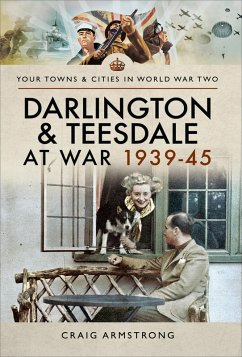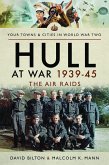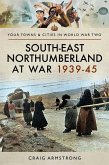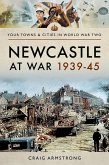During the Second World War, Darlington had a number of industries that were important to the war effort. With its historic links to the railway industry, the town possessed several engineering firms, as well as a number of companies that produced iron and steel products, and many of these companies switched some or all of their production over to wartime demands. The town also had an extensive rural hinterland and the farmers of Teesdale were faced with a barrage of new demands and regulations governing their vital work. Many residents of the area served as members of the armed forces and losses were grievous: the number of Darlington men killed while serving with the RAF was particularly high, with the impact of these losses spreading throughout the community. Despite many setbacks, Darlington was very efficient in bring its Air Raid Precautions and civil defence services up to full strength. With Britain facing invasion in 1940, many older men in the area, along with those younger men who were in reserved occupations, volunteered to serve in the Local Defence Volunteers (later the Home Guard) and one man was still serving at the age of 89. Thankfully, Darlington did not see the heavy bombing that many other communities in the North East of England suffered. However, there were still a large number of accidents in the area caused by the blackout, resulting in a number of fatalities. Locals also had to deal with rationing and not all were willing to pull together, seeing the wartime conditions, instead, as an opportunity to make illegal profits.
Bitte wählen Sie Ihr Anliegen aus.
Rechnungen
Retourenschein anfordern
Bestellstatus
Storno









